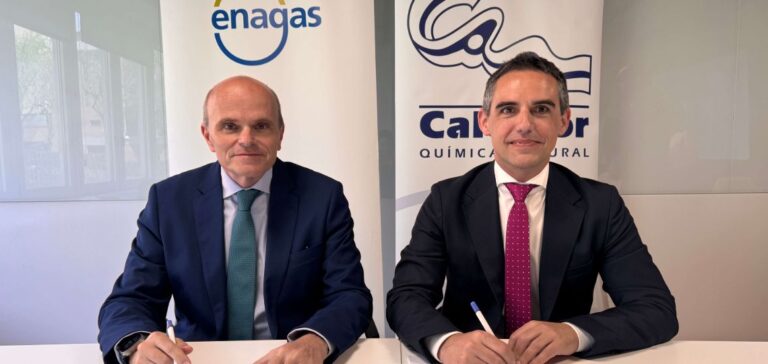Spanish gas operator Enagás and lime producer Calcinor have signed a cooperation agreement to implement joint projects for sustainable carbon dioxide (CO2) management. The agreement targets an annual reduction of up to 900,000 tonnes of emissions from Calcinor’s facilities, while establishing a dedicated logistics chain for processing industrial CO2 flows.
A partnership focused on existing facilities
Under the agreement, Calcinor will be responsible for developing CO2 capture technologies at its production sites, while Enagás will handle the transport, liquefaction, storage, and loading operations onto vessels. These operations will rely on Enagás’ regasification terminals, which will serve as points of departure for either permanent storage or reuse of the captured CO2.
Both companies plan to jointly explore European public funding opportunities for these projects, particularly through Innovation Funds and Projects of Common Interest (PCI). The agreement also includes the implementation of technical, legal, financial and organisational feasibility studies for the entire value chain.
Structuring an industrial CO2 sector
The announcement comes amid strong mobilisation in Spain’s industrial sector around carbon capture. In January 2024, during the Second Hydrogen Day organised by Enagás, a non-binding call for interest drew participation from 37 companies for capture projects representing a potential of 10.4 Mt/a, and 53 companies for the development of transport and storage infrastructure.
“This agreement with Calcinor, a key player in the industrial use of minerals, marks a major step in decarbonising a hard-to-abate sector,” said Jesús Saldaña, General Director of Business Development and Affiliates at Enagás, at the signing ceremony.
Coordinated development of a value chain
According to Andoni Mendiola, Director of Business Development and Sales at Calcinor, “decarbonisation requires a global solution covering the entire process, from capture to use or storage.” He stated that this cooperation with Enagás will enable “the design of a comprehensive value chain, aligned with emission reduction goals, while ensuring the industry remains competitive.”
The two groups say they aim to capitalise on their respective synergies to become key players in shaping this emerging sector. Initial studies are expected to assess infrastructure needs, viable economic models, and contractual frameworks for operational implementation.






















